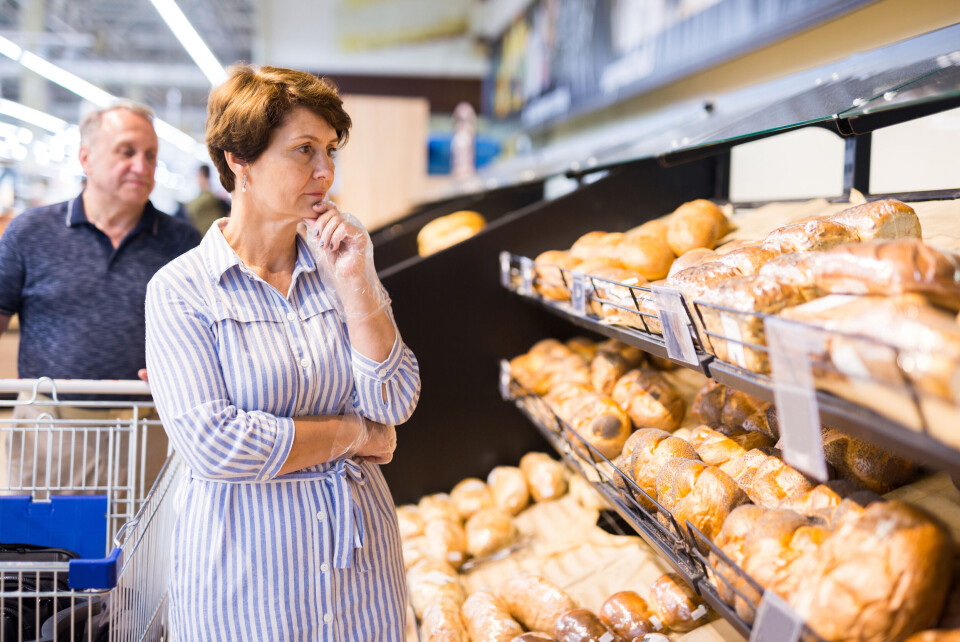-
France’s Christmas bonus: who receives it, and how much is it in 2025?
Around two million households are eligible for one-off ‘prime de Noël’ payment
-
Can adult children be held responsible for the debts of their parents in France?
If the mother or father has died the situation can be complex
-
Why your home insurance in France is likely to increase
Climate change-related claims cost more than €5 billion last year
French supermarket price wars continue as shoppers try to save money
More than half of people in a poll said spending power was of more concern to them than the Russian invasion of Ukraine

Consumers in France are bracing for price hikes as steep inflation – around 4% year-on-year in March – rising fuel bills and the Russian invasion of Ukraine take effect.
It comes as spending power is the leading issue of the presidential election.
More than half (53%) of people polled by Ipsos-Sopra Steria in mid-March said it was their biggest worry, ahead of the war.
This has been increasingly so since last year which saw 3.6% inflation (the highest since 2008) and an average 21% energy price hike (Insee figures).
UFC Que Choisir meanwhile estimates average fuel bills for homes heated with gas to have risen 53% last year, or 10% for those using only electricity.
Energy, transport and packaging blamed
Food prices were on the whole relatively spared in 2021 – though pasta is said to have shot up by 42% and flour, sugar and canned vegetables by 8% – but are now on the up, and predicted to rise more this year.
A recent France 2 study of 31 common products found coffee to have risen 3% in March linked to a poor harvest in Brazil, followed by olive oil and eggs (2%).
Meanwhile, annual negotiations between industrial food producers and distributors have resulted in agreed price rises from April for staples such as pasta, oil, coffee and tinned vegetables of 3-4%. Producers said these hikes were in many cases due to rising prices of energy, transport and packaging as a result of the pandemic.
Already before the Ukraine war, 46% of 13,000 French households polled by Kantar Worldpanel said they would be trying to save by wasting less food. Some 44% intended to cook more home-made meals and 38% said they planned to buy more special offers and to shop more at the cheapest supermarkets– Lidl, Aldi and E.Leclerc.
17% between cheapest and most expensive supermarket
Price comparisons are set to be part of people’s cost-saving efforts. A study published in February by UFC-Que Choisir across a basket of 98 products showed a 17% gap between the cheapest chain (E.Leclerc, €348) and most costly (Casino, €408).
Volunteers for the consumer body checked prices nationwide in 1,006 supermarkets belonging to eight chains, with prices for the same basket being:
Casino: €408;
Auchan: €381;
Carrefour: €372;
Cora: €370;
Système U: €365 (the closest to the average of €366);
Colruyt: €363;
Intermarché: €356;
E.Leclerc: €348.
Read more: Which supermarket in France is the cheapest? Tests show 17% difference
Pricing not same across country
The cost also varied from one area to another, particularly in Casino supermarkets, where it was up to €107 more expensive in some places.
Carrefour also showed a difference of €101, but Cora’s prices varied only by €19.
The cheapest E.Leclerc supermarkets were in Brittany, Pays de la Loire and Nouvelle-Aquitaine, with higher prices for the same basket in Ile-de-France and Provence-Alpes-Côte d’Azur.
In most cases prices are the same for buying in the aisles or by click-and-collect, apart from at Casino, where the latter was significantly cheaper (€371).
Read more: How to check how expensive your local French supermarket is
Baguette price war caused anger
The first skirmishes of a price war were seen in January when E.Leclerc announced the 29-centime baguette, 10 centimes cheaper than its nearest price rivals (this was then followed by pork chops at €1.69 per kilo and ham at €1.85).
Independent bakers, who charge around 90 centimes, said it would kill small bakeries.
Lidl followed suit, even though its executive director, Michel Biero, conceded “it is fuelling a price war that destroys values and is sending a dramatic message to an agricultural world in great distress”.
Read more: Lidl France joins Leclerc to sell baguettes for 29 centimes
E.Leclerc’s president was unrepentant. “Those who complain about ‘too low’ prices, while inflation is shooting up are living on another planet,” he said on Twitter.
He said E.Leclerc would however respect the loi EGalim, which stops supermarkets making farmers sell at a loss.
Observers note, however, that a side-effect of the law is that supermarkets are negotiating harder with other suppliers, including packaging plants, transporters and energy firms.
Demand for organic is down
Meanwhile demand for organic food is dropping, leading to over-production, especially of eggs, apples and fresh milk, after un-precedented growth over the last decade.
France is a leader in organic food production, with 13% of farms having converted to organic methods, and their unions point out it is important to sustain the transition.
Faced with increased price pressures, the national agency for promoting organic food is putting nearly €1million into a new marketing campaign.
Related articles
French fuel prices on the rise again, topping €2 per litre
The good, the bad and the ugly of customer service in France
Boom in French supermarkets buying and selling second-hand items
























